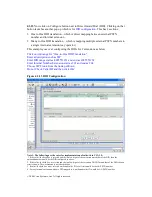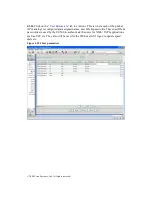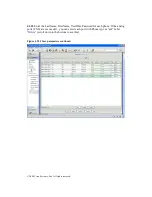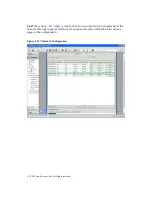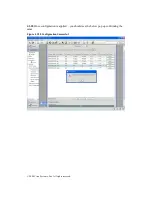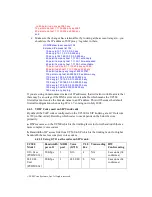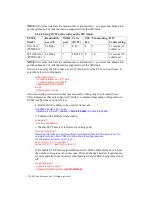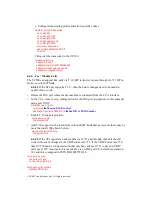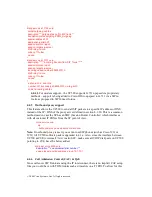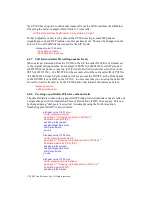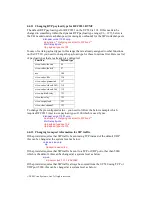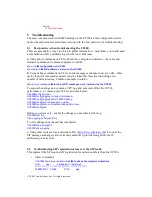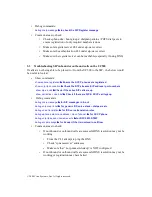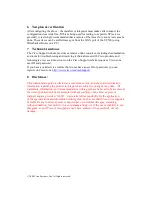
© 2008 Cisco Systems, Inc. All rights reserved.
4.4.11
Changing RTP payload type for RFC2833 DTMF
The default RTP payload type for RFC2833 on the UC520 is 101. If this needs to be
changed to something within the dynamic RTP payload type range (96 – 127), below is
the CLI needed under each dial-peer (incoming & outbound) for the SIP trunk dial-peers.
dial-peer voice 11001 voip
description ** Outgoing Local call to SIP trunk **
dtmf-relay rtp-nte
rtp payload-type nte 103
In case of certain payload types in this range that are already assigned to other functions
on the UC520, you need to change the payload type for these functions first. Here is a list
of payload types that are already pre configured:
Function
Payload type
cisco-codec-fax-ind
96
cisco-codec-fax-ack
97
nse
100
cisco-codec-ilbc
116
cisco-codec-gsmamrnb
117
cisco-codec-video-h263+ 118
cisco-codec-video-h264
119
cisco-rtp-dtmf-relay
121
cisco-fax-relay
122
cisco-cas-payload
123
cisco-clear-channel
125
To change the preconfigured value – you need to follow the below example which
requires RFC2833 (nte) to use payload type of 100 which is used by nse.
dial-peer voice 11001 voip
description ** Outgoing Local call to SIP trunk **
dtmf-relay rtp-nte
rtp payload-type nse 104
rtp payload-type nte 100
4.4.12
Changing transport information for SIP traffic
If the provider requires that SIP traffic be sent using TCP instead of the default UDP –
this can be changed at the system level as below:
voice service voip
sip
transport session tcp
If the provider requires that SIP traffic be sent to a TCP or UDP port other than 5060
which is the default; this can be changed at a system level as below:
sip-ua
sip-server ipv4:10.1.1.254:5065
If the provider requires that SIP traffic always be sourced from the UC520 using TCP or
UDP port 5060, this can be changed at a system level as below:

